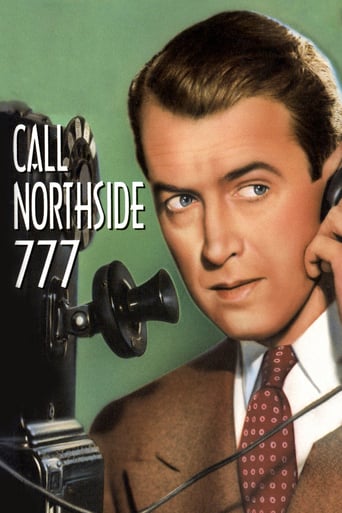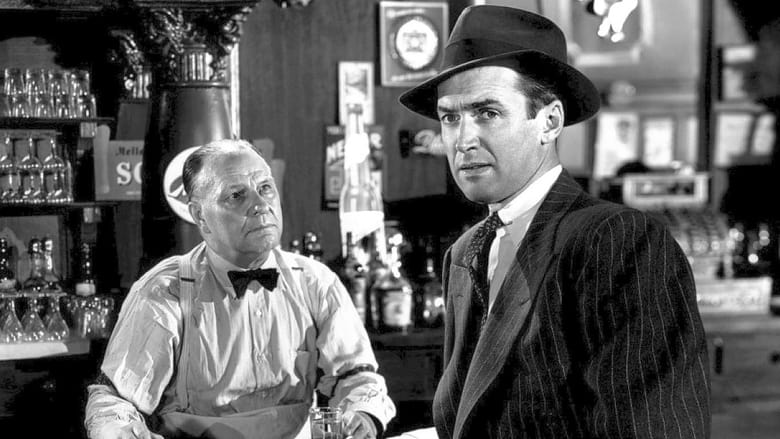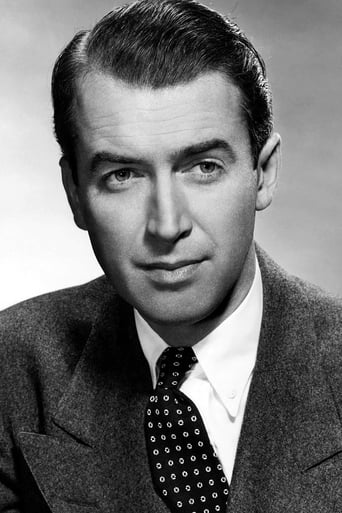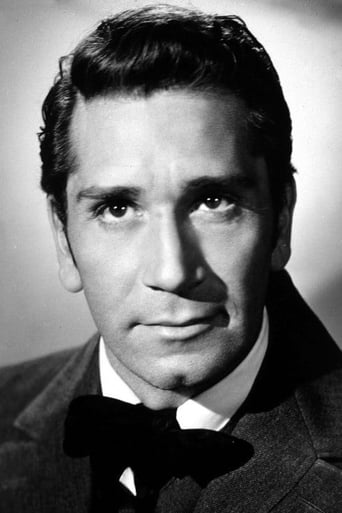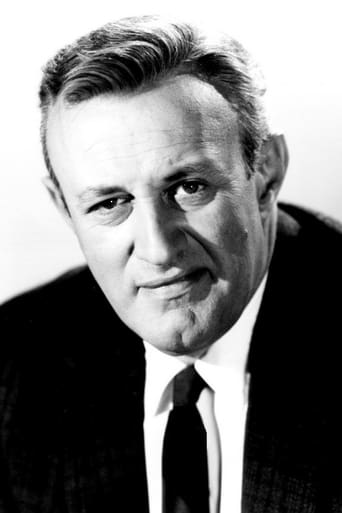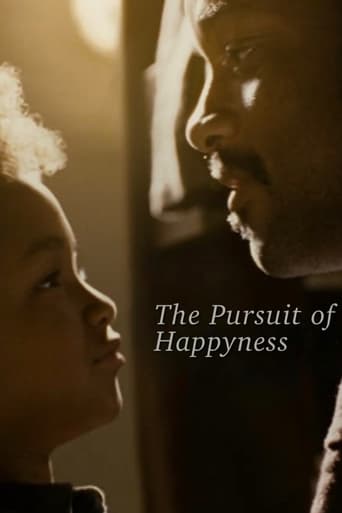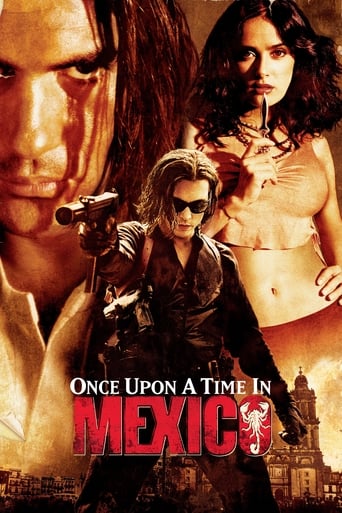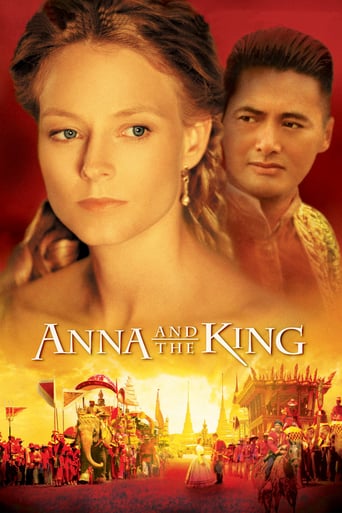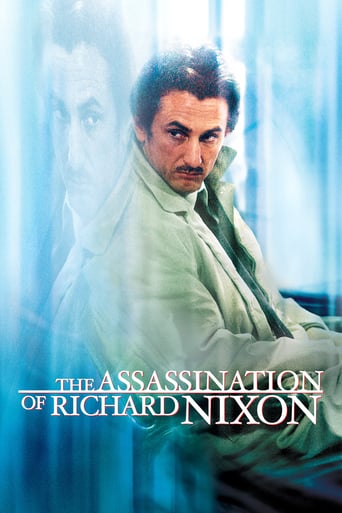Call Northside 777 (1948)
In 1932, a cop is killed and Frank Wiecek sentenced to life. Eleven years later, a newspaper ad by Frank's mother leads Chicago reporter P.J. O'Neal to look into the case. For some time, O'Neal continues to believe Frank guilty. But when he starts to change his mind, he meets increased resistance from authorities unwilling to be proved wrong.
Watch Trailer
Cast


Similar titles
Reviews
Best movie of this year hands down!
People are voting emotionally.
I wanted to but couldn't!
A Masterpiece!
Henry Hathaway was one of the best realists of Hollywood, and here he strikes home with full score. It's the closest he got to a documentary, and it's actually a true story he is telling with all its gripping details and the amazing turn-out.In 1932 the number of homicides in Chicago breaks all records, among the crowds of victims are 8 policemen, and the last of these police murders is the most brutal one, occurring in broad daylight at a public café, and the two murderers get away with it - you never get a clear view of their faces. Nevertheless, two men are convicted of the murder and sentenced to life on the evidence given by only one eye-witness, the Polish landlady of the café.11 years later an odd advertisement in the newspaper offers a reward of $5000 to anyone who finds the real murderer, which catches the eye of an editor (Lee J. Cobb) who sends reporter James Stewart to investigate the announcer, who appears to be an old Polish cleaning-lady, who is mother of the convicted.James Stewart is only out for the story and can't believe anything of it, that the mother has slaved for 11 years to save all this money to offer as an award to have her son exonerated, or that the convicted was innocent. That's how it begins.He delves into the story and has the convict (Richard Conte) tested by a lie detector, which appears to confirm his innocence.There it begins. James Stewart (reporter James McNeal) starts working on an overwhelmingly hopeless case with all possible odds against him, but he never gives up.It's a heroic tale from real life of a journalist's quest for the truth at any cost with the sole possible award tempting him on being his conviction that the truth finally will prevail.Only the realism of the film of all the dungiest parts of immigrant Chicago and other insights behind the hard walls of the city makes it a classic for all times. Alfred Newman's music adds to it, all the actors are perfectly natural and convincing, and Henry Hathaway leads the way with a very safe and calm professionalism, like a hand on a revolver that never can miss. Still there are some question marks.Whatever happened to the other convict? If Frank Wiecek was innocent, what about the other guy? And what about some damages for his 11 years in jail? He did after all have a wife and a son, who hadn't been born yet at the time of the strike of bad luck.You can't doubt his innocence, though, and although James Stewart gets more and more fanatic about it you have to side with him completely. The fact that Frank (a catholic) ordered his wife to find another husband and another father for their son at his imprisonment should have convinced anyone of his innocence from the beginning. Actually, his judge believed him innocent, and the fatality was that he could be sentenced on the testimony of only one (doubtful) eye-witness.
When this movie started, I wasn't sure that I would truly enjoy it. As you can imagine, I was pleasantly surprised when I got to the middle of the movie and found that it was actually somewhat interesting. As far as the cinematography of this film is concerned, the lights and sound really helped to enhance the intensity that this film deserved. It amazes me how the simple change in the lights can make or break the seriousness of the characters and majorly affect the way the movie comes across to the audience. The quick cuts made in the editing process also really helped to make the film more enjoyable and action packed which is what ultimately lead to my enjoyment. I would recommenced this film to anyone who is looking for a film that will excite them and will ultimately surprise them!
There's only one thing I remember from my twelve years in the public school system, and it's from kindergarten: one dot does a lot. This was, of course, in reference to gluing things, so as not to make a mess; but, it taught me a greater lesson: the strength of subtlety-- boy, that's a hard word to spell."Call Northside 777" is full of dots, and proceeds to connect them. It sounds boring, but if the dots are interesting ones, and if the road from dot to dot is full of zigzags and loopdeloops, it can almost make for a good movie. Unfortunately--for the film and for me--the dots are dull and the lines between them straight and solid.The film stars Jimmy Stewart as P.J. McNeal, a journalist who responds to a peculiar ad in the paper asking for information on a murder from a decade ago. It turns out to be the mother of the convicted, and McNeal turns her into a story, which leads to another, and another after that, until he's in too deep. Stewart sheds his "aw, shucks, I just want everyone to be happy" persona in favor for a more cynical manner; the part's not difficult, as it's primarily just nodding and scrunching your eyebrows, but Stewart plays it straight. The man convicted for murder is played by Richard Conte, better known now as the Don of the Barzini family in "The Godfather"; he's good here, especially in one of the better lie detector bits I've seen on film.Lee J. Cobb--or as I call him, dime-store George C. Scott--is in the film as the editor of the newspaper. He's such a great actor that it's a shame he's given nothing to do but grimace, which would be a greater injustice if he wasn't so damn good at grimacing. Despite my dislike for the spine of the film, I am a sucker for film noir, which this film so daintily sticks its toe into. There's guys in suits and fedoras, walking around in the dark smoking cigarettes, so the movie has that going for it. If you've seen any procedural drama on television or in the movies, you've seen "Call Northside 777." Obviously, the details are different, but the DNA's the same. It's like a Mr. Potato Head with different eyeballs. Or maybe it's nothing like that, I don't know. There are people out there, I know, who eat up regurgitated information and this film will very much appeal to them. Bon appetit.
So says one of the observers on random wrongful conviction victim Frank Wiecek in this docudrama (= based on a true AND representative story of the American Way). CALL NORTHSIDE 777 is refreshing for its post-WWII naivete in which inhabitants mistook America for a Democracy (one man, one vote) as opposed to the corporate conglomerate it actually is (one dollar, one vote, codified into law explicitly with the recent CITIZENS vs. UNITED U.S. Supreme Court decision). Why someone as smart as George Bailey (or Chicago TIMES reporter Jim McNeal here) would not know this is beyond me. For 150 years, U.S. law enforcement has had two prime directives: protect rich people's property, and protect itself. Any other goal comes in a distant third at best. When anyone breaches raisons d'etre #1 OR #2, a random poor person can be easily incarcerated and\or fried if the real culprit is not conveniently available or appropriate to convict, as is the case with this story's police patsy, Frank Wiecek (and his inexplicably lost-at-the-end co-defendant, Tomek Zaleska) in this film. Released after 11 years of political imprisonment with just $10, crusading Chicago TIMES reporter Jimmy Stewart tells Frank he's lucky he's been given 91 cents for each of his 11 years at hard labor. So what if Frank lost his youth and his wife, and not even O.J. is looking for Officer Bundy's "real killer" in this case (the late police Captain Norris?). In one of Wikipedia's articles on world justice, it's noted that the percentage of inmates and executed people in the U.S. who were below the poverty line as free civilians is 71%, 20 points higher than any ACTUAL world Democracy (= one man, one vote). Though the Tea Party labels poor people as Satan's spawn, CALL NORTHSIDE 777 proves they're the salt of the earth, as Jesus said, as well as easy pickings when the criminal U.S. justice system needs a scapegoat.

